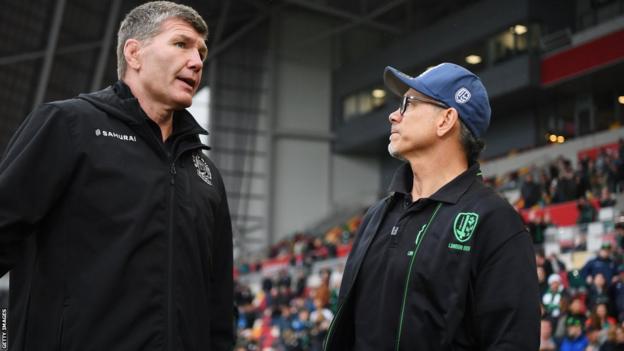 London Irish played their final Premiership game against Exeter on 6 May before filing for administration
London Irish played their final Premiership game against Exeter on 6 May before filing for administrationThe past 12 months have been a sobering time for domestic professional rugby in England.
Just under a year ago, the English Premiership had 13 teams. Now, there are 10.
London Irish,Wasps and Worcester have all gone into administration, and last month Championship title-holders Jersey Reds ceased trading.
Why are so many clubs failing? Is this rock bottom? Or is there more to come?
In iPlayer documentary Rucks and Riches, which will be broadcast this weekend, BBC Sport takes a closer look.
Watch Ruck and Riches this weekend on the BBCWhy are rugby clubs failing?
Since English rugby went professional in 1995, clubs have largely relied on rich benefactors. In September, it was reported the combined debt of Premiership teams was more than £500m.
The fundamental problem, says Wasps joint administrator Andrew Sheridan, is that costs have always far exceeded revenues.
"Three clubs in one season was pretty drastic and tragic, but you ask was I surprised?" he says in Ruck and Riches. "No, not really."
And former England international Martin Bayfield says he has seen no progress in terms of a sustainable infrastructure since he was part of the game turning professional.
"Rugby has led a pretty much hand-to-mouth existence right through the professional game," he says.
"It was not a surprise that a rugby club was in danger; it was a surprise how quickly and how devastating the fall of the clubs was.
"Rugby needs to realise it's not as big as it thinks it is. It is going for global domination, but I think it's over-reached itself."
What happened last season?
In October 2022, Worcester were suspended for the rest of the Premiership season and relegated from the top tier after falling into administration.
The Rugby Football Union (RFU) then rejected the club's plans to return to the Championship until an alternative buyer was sourced.
Former Worcester player Graham Kitchener feels the players were "hung out to dry", and the RFU was not as "concerned" as it could have been.
"To see the club go out of the league was shocking really, and you kind of wonder about the state of rugby," he says.
RFU chief executive Bill Sweeney admitted at the time the system had to change if clubs were to become more sustainable, and said he had "the energy and passion" to lead a recovery.
Inside 21 days, Wasps became the second Premiership club to go into administration.
"It was almost like a bereavement," one Wasps fan tells Rucks and Riches. "It was a major blow, and one we haven't really still come to terms with."
After the season finished, London Irish became the third casualty after failing to meet a deadline to complete a takeover.
Their potential replacements, Jersey Reds, were denied promotion in May because their ground did not meet the minimum Premiership standard. Within months, the club ceased trading and said liquidation was "inevitable" unless funding could be found.
Former Wasps head coach Lee Blackett says: "I'd like to think we're at rock bottom and we're trying to move ourselves out."
Can Covid-19 be the sole reason?
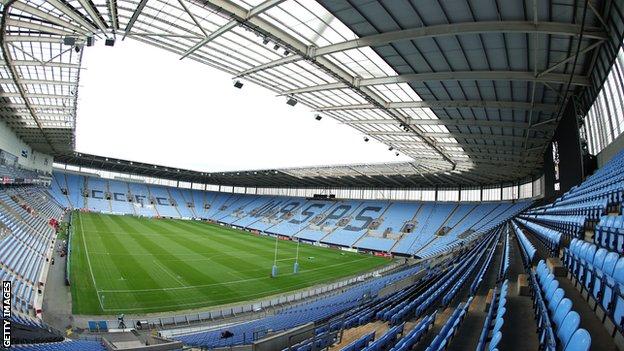 Wasps relocated to Coventry in 2014 to ground share with Coventry City FC
Wasps relocated to Coventry in 2014 to ground share with Coventry City FCBlackett became Wasps' interim boss in February 2020 after Dai Young stepped down, and took the role permanently two months later.
At the end of his first full season, Wasps had made a loss of £7.4m to take debts to £28.6m. It was no surprise to Blackett, with much of the season played with no fans in stadiums because of the Covid-19 pandemic.
"I think that has got a lot to do with it," he says. "It is funny that people get loans to get themselves through Covid-19, and then a couple of years later three Premiership clubs go within one year."
Traditionally a London club, Wasps relocated in 2014 to groundshare with Coventry City FC - a move part-funded by selling investment bonds to supporters.
The Coventry Building Society Arena can seat just under 34,000 fans, compared to the 10,000 that could be accommodated at Adams Park - their previous ground.
But with no fans and more costs, the debts began to rise.
They were not alone. London Irish, who moved to Brentford FC's Gtech Community Stadium in November 2020, had debts of £28.3m at the end of the 2021 season.
"Clubs in the Premiership rely heavily on ticket sales, so the fact that stadiums were empty, the revenue was not coming in," says Catherine Forshaw - a solicitor in sports law.
"Then you've got the hospitality side, the merchandise, and on the back of Covid-19 there hasn't been that influx of people back in the stadiums in the same way."
All clubs were affected in different ways, but should the infrastructure in the Premiership be so reliant on fan engagement?
Forshaw says the division is "not the lucrative entity" but rather international matches at Twickenham, meaning rugby has always had a "power struggle".
And despite plans announced in 2021 to expand the top division to 14 teams, just 10 will compete this season.
The futures of London Irish and Worcester remain unclear, though Wasps are set to begin from the bottom of the playing pyramid after missing registration for the 2023-24 season.
Premiership Rugby chief executive Simon Massie-Taylor says: "I think the situation was so severe principally because of the circumstances the clubs were in after the pandemic that there was very little that could have been done."
And he urges fans of London Irish, Wasps and Worcester to "stay loyal" while they work on a system to get the former clubs back to the top flight "as soon as possible".
"They're such great brands and they're so important to the fabric of rugby in this country," he says. "That's now part of the mission to try to resuscitate those brands and make them what they were again."
Sweeney, meanwhile, said the RFU would do all it can to help find new investors for Jersey Reds.
"As an avid rugby fan, I'd like to see more collaboration between the Premiership and the RFU, but it's got to be meaningful and transparent," says Forshaw.
A 'special league' that has potential
Sweeney has said English rugby is on "the cusp of something quite spectacular" as work continues behind the scenes.
Among the plans are the introduction of hybrid contracts, which could allow England coaches more control over their players, and may help slow a drain of talent overseas.
Jack Willis moved to the Top 14 in France after Wasps' demise, and Henry Arundell, Joe Marchant and David Ribbans will join him there after the Rugby World Cup.
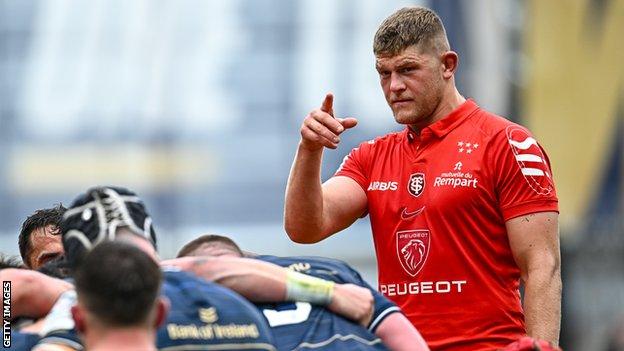 Jack Willis won the Top 14 last season with Toulouse after moving from Wasps
Jack Willis won the Top 14 last season with Toulouse after moving from WaspsFormer England international Matt Kvesic, who lost his job at Worcester and is now playing for Coventry, says: "The product on the pitch in the Premiership is brilliant. Last year it was absolutely brilliant, but what was happening off it was a mess."
Ex-London Irish head coach Les Kiss can only see the Premiership "thriving" in the days ahead.
"The Premiership is the most exciting and challenging competition I have been involved in," says Kiss, who joined Queensland Reds after leading London Irish to a fifth-place finish last season.
"We have hit some bumps, definitely, and some challenges but I only see a bright future."
Kitchener says a sustainable league has to be the primary goal, and Sweeney believes better financial modelling and checks and balances will help that.
"The ideal is you want settled teams with the ability to bring those young English players through, and also giving the clubs the ability to sign one or two really good overseas players," says Kitchener.
'A lot of people are jealous' of the French model
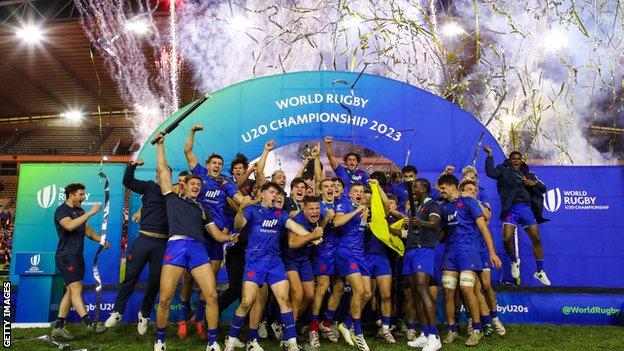 France beat Ireland 50-14 in South Africa at the Under-20 World Championship final in June
France beat Ireland 50-14 in South Africa at the Under-20 World Championship final in JuneFrance has four professional leagues, with 30 teams across the top two leagues, all of whom have pro academies.
The World Cup hosts have won the past three Under-20 World Championships after a domestic restructure following the 2019 World Cup, when they lost to Wales in the quarter-finals.
"I think if you look at the scenes in France, it's pretty special," says Blackett, who is now Bath's attack coach.
"There are a lot of people over here jealous of what they are doing with the game."
But rather than losing hope, Kiss wants continued development in England, starting with improvements in the amateur game.
"London Irish still exists as an amateur club," he says. "There is a thriving amateur game there and a lot of kids turn up every Saturday and Sunday up at Hazelwood to do what they love.
"That still lives, and when something like that still lives, maybe there is hope."
Rugby World Cup fixtures, pools & BBC coverageSubscribe to the Rugby Union Daily podcast


 Movie
Movie 6 months ago
101
6 months ago
101 
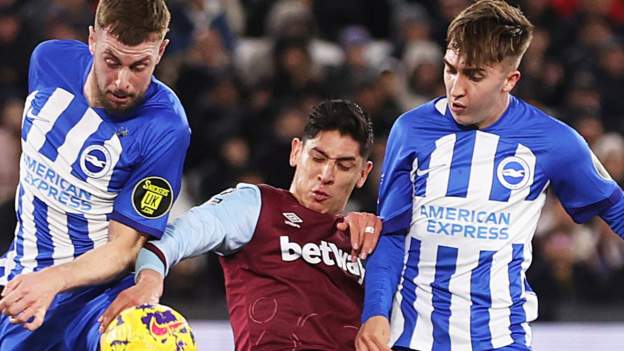
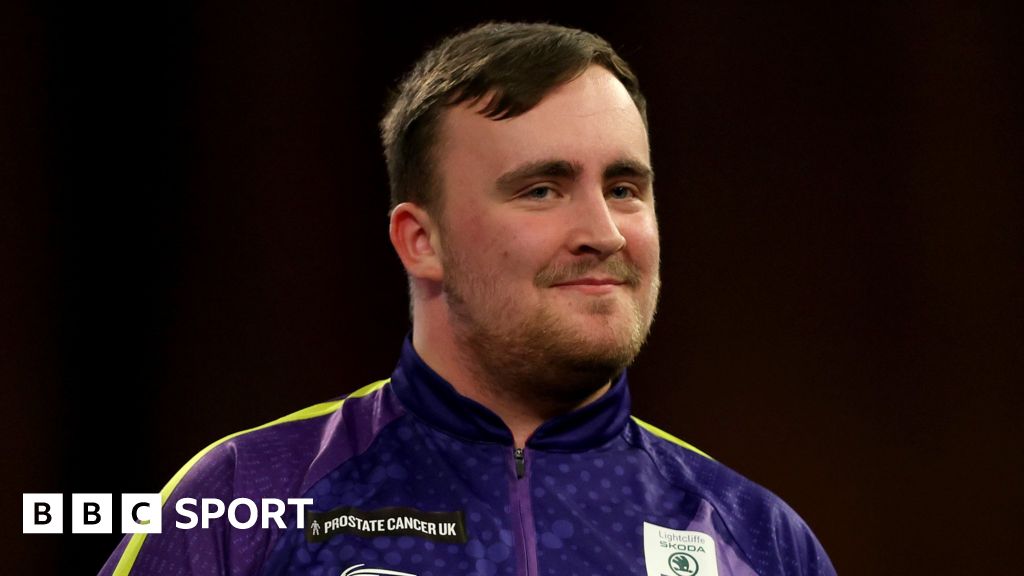
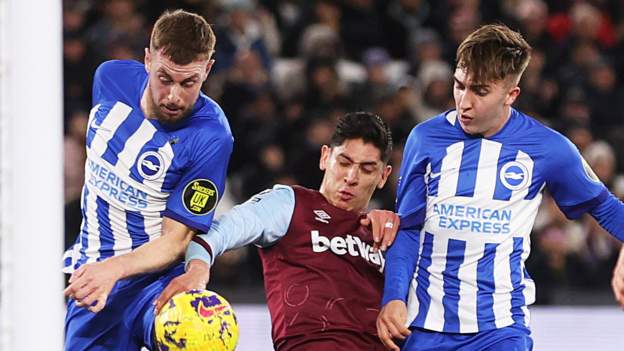
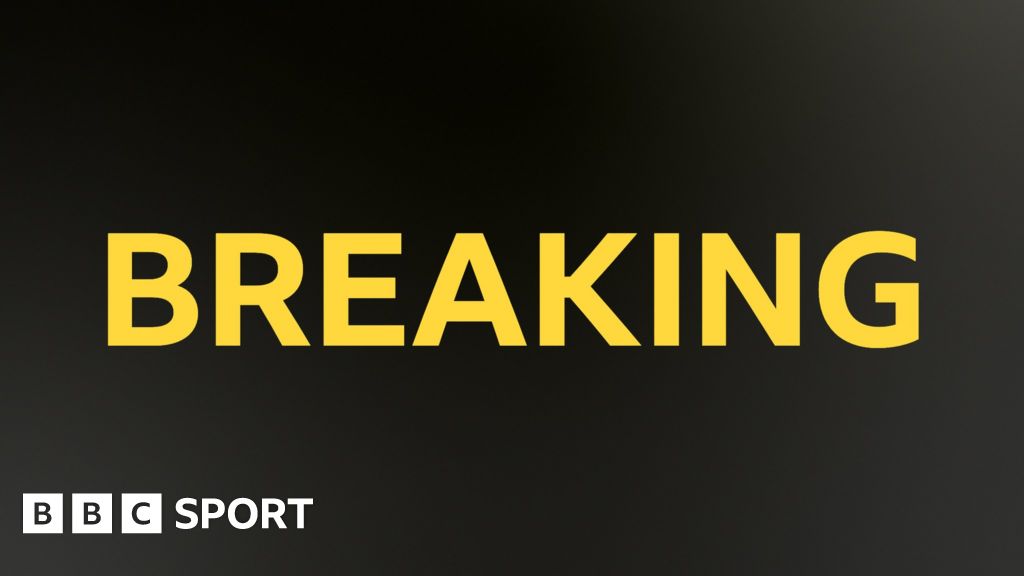


![Presidents Day Weekend Car Sales [2021 Edition] Presidents Day Weekend Car Sales [2021 Edition]](https://www.findthebestcarprice.com/wp-content/uploads/Presidents-Day-Weekend-car-sales.jpg)



 English (United States)
English (United States)